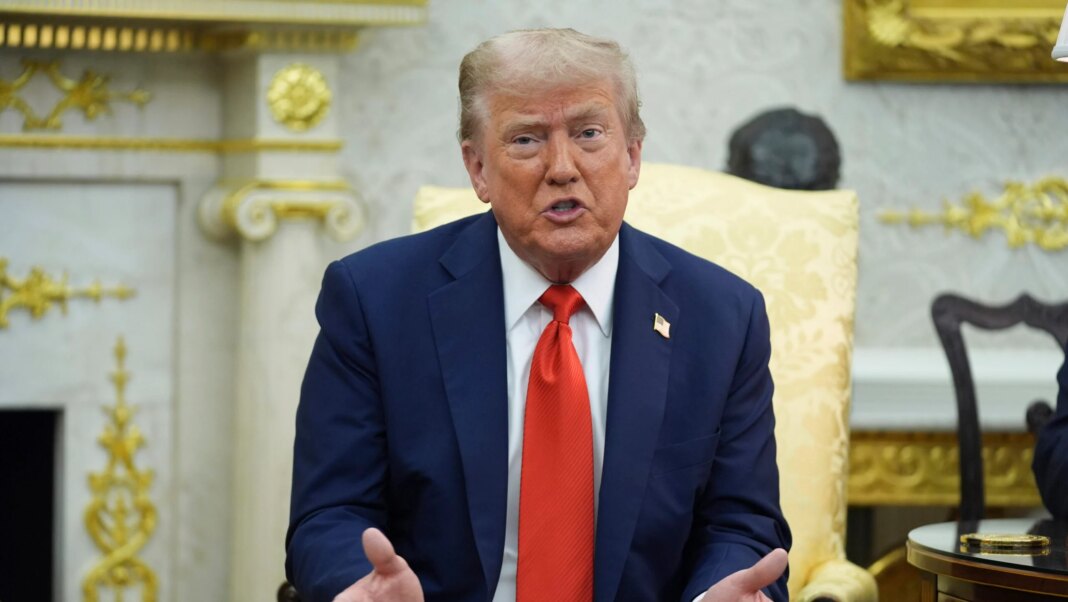SNAP Benefits and Government Shutdown: A Twisted Tale of Politics and Food Security
Amid growing concerns about food insecurity, a new chapter in the ongoing government shutdown saga has unfolded. With government food assistance programs like the Supplemental Nutrition Assistance Program (SNAP) on the brink of disruption, former President Donald Trump recently took to his Truth Social platform to cast blame—directed squarely at Democrats.
The Background of SNAP and the Shutdown
SNAP benefits make a substantial impact on millions of Americans, providing essential support to families facing food insecurity. However, as the government shutdown lingers, the ability to fund these benefits has come into question. The U.S. Department of Agriculture announced that it could no longer provide funding if the shutdown continued, raising alarms as deadlines approached.
Trump Shifts Blame
In a recent Truth Social post, Trump pointed fingers at Senate Majority Leader Chuck Schumer and the Democrats for the impending lapse in SNAP benefits. He claimed that government lawyers had ruled his administration lacked the legal authority to use available funds for SNAP amid the shutdown. This line of reasoning has drawn skepticism from various quarters, particularly since Republicans controlled both the presidency and Congress during this time.
Trump’s framing of the situation was provocative. He asserted, “I do NOT want Americans to go hungry just because the Radical Democrats refuse to do the right thing and REOPEN THE GOVERNMENT.” This statement encapsulates his tactic of dismantling accountability while harnessing populist sentiments—fueling his base while seeking to deflect criticism.
Legal and Procedural Challenges
In his post, Trump elaborated that delays in SNAP funding arose largely from the shutdown’s timing, as well as the procedural requirements states must navigate to allocate benefits. While he expressed a willingness to provide funding if legal clearance was obtained, the looming uncertainty painted a bleak picture for those reliant on SNAP.
Moreover, Trump mentioned his past actions, likening the potential funding for SNAP to what he did for military and law enforcement pay. This comparison serves not just to portray him as a benefactor, but also to embed a sense of urgency around the SNAP situation.
Directing Public Outrage
Adding to the drama, Trump encouraged individuals impacted by the cuts to reach out to “Cryin’ Chuck Schumer,” sharing the Senate leader’s public office number. This action has drawn ire from critics who accused Trump of shirking responsibility at a critical juncture. The call to action was less about fostering constructive dialogue and more about rallying public sentiment against Democrats.
Judicial Rulings and Immediate Implications
Remarkably, legal developments late Friday brought some relief. Two federal judges ruled that the Trump administration must continue funding SNAP using contingency resources, countering the USDA’s claims. This judicial intervention offered a flicker of hope amid the chaos, just as benefits were set to be frozen.
However, there remains a cloud of uncertainty regarding the timeline for implementing these rulings. The process of reloading benefit cards typically spans one to two weeks, leaving many families in a precarious situation in the interim. Trump’s assurances that the administration would comply with the court orders were tempered by his acknowledgment of the bureaucratic hurdles ahead.
The Gravitational Pull of Political Drama
Trump’s statements reflect a broader trend in American politics, where the lines between governance and political theater often blur. As millions of Americans grapple with the reality of food insecurity during the government shutdown, the dynamics of blame, responsibility, and urgency come into sharp focus.
The interplay between political maneuvering and the tangible impact on citizens’ lives highlights the urgent need for constructive solutions in times of crisis. While the courtroom drama may provide temporary solutions, the larger issue of food security and government accountability remains unresolved—seeking the attention it rightfully deserves.
In this complex landscape, the stakes are undeniably high, as the gap between political rhetoric and real-world impact continues to widen.



